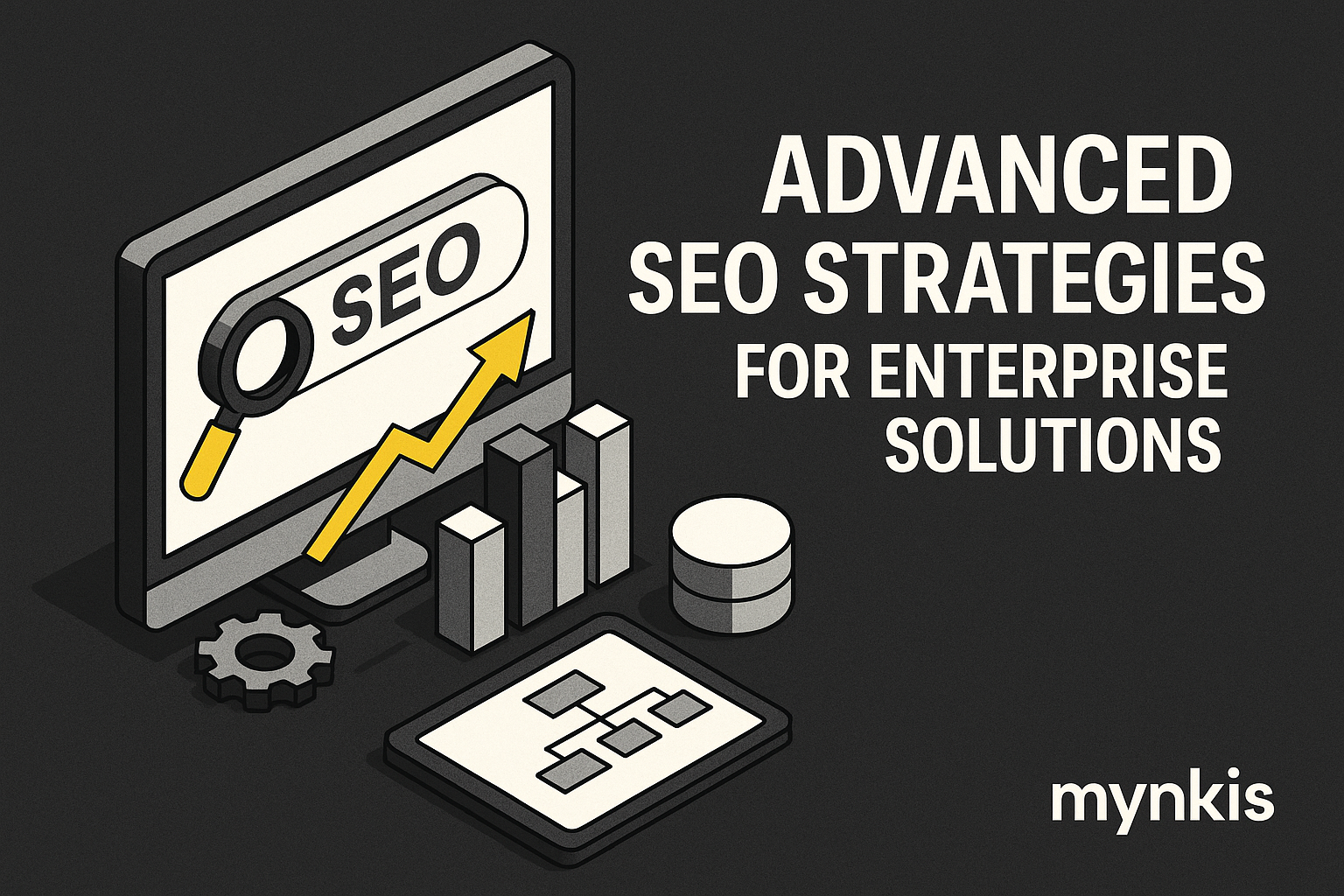Schedule a Demo
In the realm of enterprise-level solutions, SEO often plays a crucial, yet sometimes overlooked, role. Many large organizations focus primarily on custom software or complex web developments but miss out on the power of search engine optimization (SEO) for their internal tools or customer portals. If you're neglecting this aspect, you're missing a golden opportunity to enhance both user experience and business performance.
In my work with operations managers across various sectors, I've noticed a surprising number struggle to harness SEO effectively. For many, the challenge stems from the complexity of integrating SEO into a broader tech ecosystem. Yet, the impact can be transformative, driving better visibility and usability for both internal tools and public customer interfaces.
When embarking on the development of enterprise-level solutions, it's not just about functionality and security. Enhancing visibility through effective SEO practices helps in reaching your target audience more efficiently. For internal tools, it can drastically improve staff productivity by making information and applications easily accessible. For customer-facing portals, excellent SEO translates to greater market reach and higher engagement.
Consider a scenario where a customer can't find your support page because it's not ranking well. Or an employee wasting minutes daily trying to locate crucial business reports. These are real problems solved by proper SEO implementation.
At the heart of any solid SEO strategy lies meticulous keyword research. Keywords are the compass that directs users to your digital assets. For an enterprise's custom software development, your keywords might range from industry-specific jargon to more general terms connected to your sector.
But it's not just about stuffing keywords into your content. The goal should be to integrate them naturally within your site's structure and content, making it as organic as possible. While the specifics may vary based on the client’s niche, the foundation remains: understanding your audience's search intent and catering your content accordingly.
On-page SEO is crucial for any enterprise seeking to optimize its custom web solutions. Start with your site's titles and meta descriptions, ensuring they're not only keyword-rich but also compelling enough to encourage clicks. Header tags, like
URL structures also matter significantly in SEO. Keep them clean and descriptive; they should easily convey the content of the page without unnecessary jargon. Also, include keywords where relevant, but maintain a balance to avoid seeming spammy.
When you're dealing with large, complex sites—whether it's an internal tool for your workforce or a public-facing customer platform—technical SEO becomes vital. It involves speed optimizations, ensuring your site's lightning-fast load times across various devices, and implementing protocols like HTTPS for security.
Issues like broken links, improper redirects, and inefficient coding can severely impede your SEO efforts. Regular audits are a must. In situations where I've worked with CTOs setting up these technical elements, the universal advice is to set a protocol for continual review and update of these technical facets.
SEO is not just about being seen—it's about improving user experience. An SEO-optimized site improves navigation, making it simpler for your users to find what they need. Think about micro-navigations like breadcrumb trails or sitemap integrations. These small touches significantly boost site usability and user satisfaction.
Moreover, SEO-driven design decisions ensure that mobile responsiveness is never an afterthought but a priority. Adaptable layouts adjust seamlessly across different devices, enhancing the accessibility of your enterprise-level solution.This isn’t an aspect that can be quantified in sales alone; it affects the actual interaction your users will have with your custom software or web platform.
While on-page and technical SEO directly optimize your site, off-page SEO efforts expand your reach. Tactics like acquiring high-quality backlinks from authoritative industry sources can significantly boost your site's visibility and credibility. I've often seen success in collaborating with industry experts or thought leaders to produce valuable, co-branded content that garners both user trust and SEO advantages.
The idea is to establish your enterprise as a thought leader. Whether through insightful blogs on Moz or strategic content marketing leveraging the Content Marketing Institute's approaches, these endeavours cement your standing in search engines and within your industry.
Performance monitoring and continuous analysis are key. Utilize comprehensive SEO tools to track your search rankings, identify areas for improvement, and adapt to changes in search algorithms. Understanding the metrics, from bounce rates to conversion rates, can inform adjustments not just in SEO but overall user engagement strategies.
Ideally, integrate a dedicated analytics dashboard into your custom software solution or ensure consistent reporting from your web development team. This approach empowers decisions with data, keeping your strategy agile and responsive.
SEO is entering a sophisticated era with machine learning and AI reshaping how we optimize. At the enterprise level, implementing algorithms to predict trending topics or fine-tuning SEO through search query understanding can set you leagues ahead. These technologies don’t just forecast; they fundamentally enhance user interaction with your SEO-focused content.
While the potential is significant, there's also a nuance here. Adopting advanced technologies might require specialized expertise, but leveraging standard SEO principles like those of Google's Search Quality Rater Guidelines offers a credible foundation before diving deeper into modern tools.
By now, the necessity of weaving SEO into the fabric of custom enterprise solutions should be clear. Whether you're exploring ways to enhance internal efficiency or striving for better customer touchpoints, SEO opens doors otherwise shut by mere functionality alone. The future points towards evermore integration of SEO, potentially involving more complex data sets and advanced predictive modelling to stay ahead.
The significant transformation comes from accepting SEO not as an add-on but as an integral element of your enterprise digital strategy. From my experience, it demands a continual investment in time, analysis, and refinement but ultimately ties directly to improved organizational growth and productivity. Investing in SEO today, every part of your enterprise digital solution, crafted for maximum impact.
